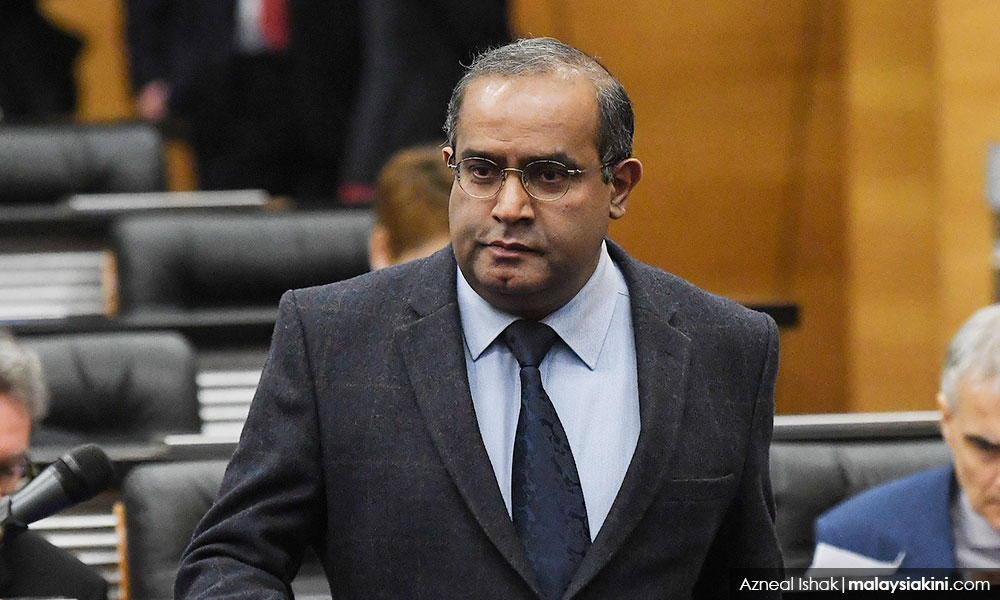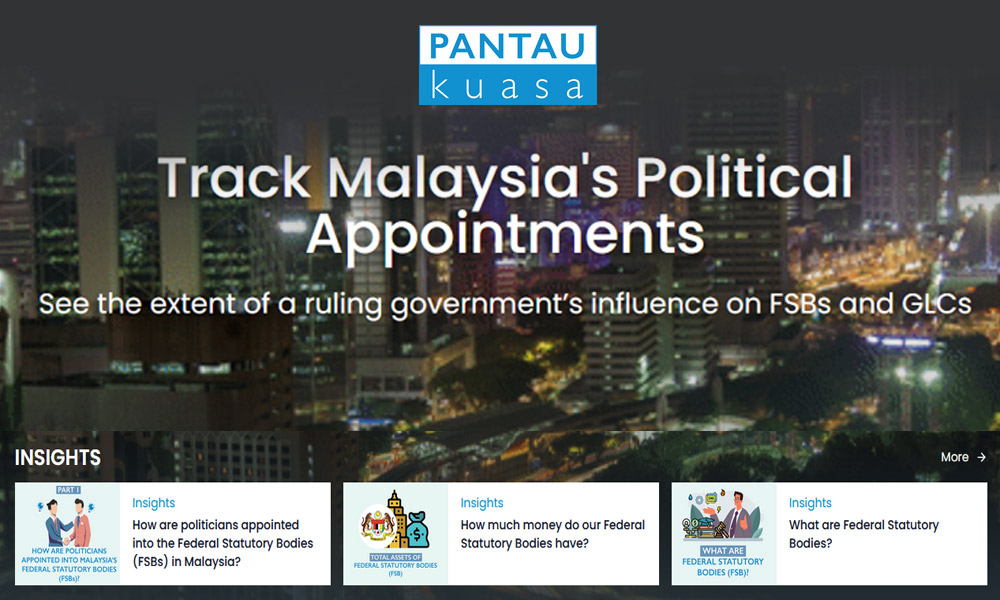The Institute for Democracy and Economic Affairs (Ideas) has launched a tracker designed to monitor political appointments in federal statutory bodies (FSBs) and government-linked companies (GLCs).
In a virtual webinar today, Ideas chief executive officer Tricia Yeoh noted that the website, called Pantau Kuasa, was the think tank’s first attempt at visualising political appointments across the country’s GLC ecosystem.
“This mapping out is actually crucial data for anyone who's interested in not just the political appointments part of GLCs - which is the website we're launching today - but also beyond that, a mapping of the entire economic ecosystem.
“Where does the power, the nexus of power and control lie, when it comes to corporate Malaysia?” she said.
Yeoh (above) noted that the newly revealed 12th Malaysia Plan similarly emphasised the need for merit and transparency in the board-member appointments within GLCs.
At present, the site looks at political appointments in FSBs in three separate governments over the last six years. This includes the BN, Pakatan Harapan, and Perikatan Nasional administrations.
The think tank aims to first comprehend the extent of political appointments in FSBs before it further examines GLCs.
The tracker relies on documents from statutory bodies such as annual financial statements and reports - which FSBs are required by law to deliver to Parliament - to track political appointments.
It also provides insights on related topics such as what FSBs are, how much money they receive, and how political appointments are made.
No catch-all solution
Universiti Malaya professor of political economy Edmund Terence Gomez said that it was necessary to map out a framework of how many GLCs exist in the country, given the vast number of groups.
“Where are the GLCs concentrated in - which ministries? Who has control? Which ministers are the most powerful in terms of controlling the GLCs? Are they willing to relinquish control?
“These are things we need to look at and be clear about, especially if you want to promote transparent and accountable governance,” said Gomez, who was a panellist in the webinar.

He also claimed that the solution to many of the issues associated with these entities could not be solved with a catch-all solution as it remains unclear how many GLCs exist and what reforms were necessary.
"I will strongly suggest that when we talk about reforms - don't come (up) with one catch-all reform. It's not going to work.
"There's a lot of discussion about using the International Monetary Fund or the Organisation for Economic Co-operation and Development (OECD) reforms. They don't work in our context.
"They cannot be so simplistic. It may work to a certain level for a small number of companies, but they do not deal with this problem of reform in the GLC ecosystem," he added.
FSBs - also known as "public enterprises or government agencies" - are established by acts of Parliament, while GLCs are established under the Companies Act.
Statutory bodies are empowered to sign contracts, acquire, and hold assets, as well as own subsidiary companies. - Mkini





No comments:
Post a Comment
Note: Only a member of this blog may post a comment.